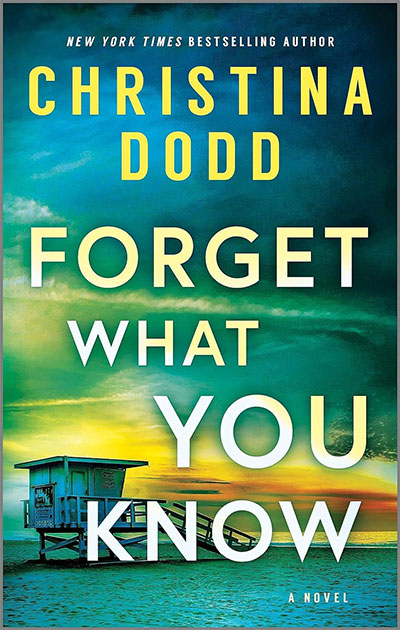
Last Seen in Gothic
February 25, 2025
Canary Street Press
ISBN-10: 1335008500
ISBN-13: 9781335008503
Available in: Hardcover, Paperback, Audio, e-Book
Every Single Secret
Available in Paperback 2/25/2025
Mr. Bandara, Helen Lamb’s first and dearest client, puttered in his kitchen, cleaning up their snack of coffee and biscotti. “I need a gardener to plant my spring flowers, the toilet is leaking, and I need an assassin to kill me.”
😳
Helen Lamb (real name Rowan Winterbourne,) owns The Fixer, a firm that specializes in helping her clients connect with someone to do the jobs they needed done. Most of her work involves repairs: gardeners, plumbers, housekeepers, construction workers, handymen. But she prides herself on always matching her clients with the proper laborers, people who will fix, clean, plant, repair, and most of all listen. For special clients, for an elevated fee, she also finds travel agents, nannies, doctors, and bankers. But never has she been asked to find an assassin.
But…Rowan can. Because of her shadowy past, she has connections. And because she finds an assassin for the dying Mr. Bandara, she’s distracted by grief and guilt…
Joe Grantham appears on Rowen’s doorstep, and for the first time, she gets it wrong. Horrifically, passionately wrong. She lets him in, reveals too much, and he blackmails Rowan to go with him to Raptor Island where she’s flung into a dangerous maelstrom of secrets, intrigue—and if she dares grasp the terrible challenge, the chance to reclaim the life and family she lost so many years before.
EVERY SINGLE SECRET…what are your secrets?
EVERY SINGLE SECRET is a third person stand-alone dark and sexy thriller featuring two protagonists, a female in hiding from her past and the male who seeks her out to use her for revenge. Expect:
— Passionate sex scenes.
— Criminal characters, violence and crude language.
— Dysfunctional family situations
— Scenes in Gothic California (see Last Seen in Gothic.)
— No cliffhangers and a guaranteed HEA.
The lighthouse at Point Offbeat faced into the teeth of the storm. Banshees howled around the tower, screaming unintelligible threats, the light circled and flashed through the clouds, and lightning blazed. During the two and a half years Helen Lamb had lived here, she'd only seen this kind of storm once before. She had exalted in it. The wildness, the waves, the glory was in absolute opposition to everything in her carefully orchestrated and carefully preserved life.
Tonight she thought hell had spat up the tempest as a curse and a warning. She stood on the viewing platform, four stories off the ground and near the jutting edge of the cliff, facing into the slashing rain. At the base of the cliff, the Pacific Ocean roared and clawed, sending sprays so high into the air she could taste salt before icy rain sluiced it away.
Or maybe she tasted her own tears.
Everything was black: sky, clouds, violence and nature's indifference. And white: The froth of the waves, the blinding flashes of lightning, the electrical discharges that danced through the air.
Standing out here, Helen was courting death. She deserved death. She had arranged to have a friend killed. On his request, of course; her client, Mr. Bandara, suffered from pancreatic cancer, he was in agonizing pain, and he wanted to go with a modicum of dignity.
But like everything else, the lightning was indifferent to her defiance. It struck all around the lighthouse, slashed a tree in half, lit the skies with jagged flames and played in blinding sheets behind the clouds and up to the heavens, and left her untouched.
The gale blew her backward against the wall, forcing her toward safety. She took the hint. Even despair had its limits. She made her way around to the door, fought the wind to open it slowly and fought the wind to close and seal it. She hung up the yellow rain slicker on a hook, toed out of her boots, grabbed a towel off the stack she kept on a shelf and dried her shoulder-length hair. She trudged down the one flight of stairs, unlocked the door and was in her quarters, a snug one-bedroom apartment she had spent the first year remodeling. Below her were two more stories of roughly furnished living space, but except for the entry area, they were unused, a diversion. She showered, pulled on a loose off-white sweater and faded jeans and stood over the heat vent until a thaw set in, then started her dinner.
When she moved into the lighthouse, the living areas on all three floors had been abandoned for years: filthy carpets, utilitarian lighting, damp insulation and faltering plaster. She had stripped the interior, doing most of the work herself. She used sub-contractors for electricity, plumbing, the trades that required a license, but she had that all installed before she did any of the interior finish work. She wanted no one to know more about the floor plans than absolutely necessary.
During the remodel, she'd come on a box of old cookbooks, speckled with damp and mold. She'd dried them out and found recipes marked by some long-ago cook, and found herself attempting from-scratch meals. They tasted better (when she didn't flub it) and she discovered she liked cooking. Tonight for the first time she was frying chicken. With mashed potatoes and gravy. And green beans with bacon.
She didn't do anything fancy with the chicken. She heated a little oil in the pan, placed the chicken skin-side down, let it brown and render the fat, then flipped it, covered it and lowered the flame.
What a day. For years and years, she had been moving away from her past, not forgetting—she could never forget—but learning to make trivial conversation about trivial things, to behave in a way that made her blend into the background. Today Mr. Bandara had made it clear that, to the discerning observer, Helen remained a wounded soul, someone on the outside of mainstream society. Part of it was that traumatic fourteenth year. Part of it was her time in foster care. Part of it was the payment she made to keep her past a secret; this acute and ongoing loneliness.
She valued loyalty. In her life, it was more rare than rubies, so when, on the way to the hardware store for Mr. Bandara's toilet parts, she had stopped on the shoulder of the road and emailed the one living person who knew all the truths about her: her father's girlfriend.
I need an assassin. Can you help?
She had provided a phone number for a burn phone. It had been ten years since she'd communicated with Kealoha, and who knew whether she was still alive, or free, or…
Or.
People like her and Kealoha didn't usually survive for long, and when they did, they didn't take it for granted.
Yet within ten minutes, Kealoha had called and the sound of her warm voice had eased Helen's angst. "I'm so glad to hear from you. Sure, I can help you contact an assassin. I think he's still in the business. Let me text him." She didn't ask why Helen needed an assassin.
Helen didn't tell her.
Instead they discussed Kealoha's success as a studio musician after her move to a large east coast city. She didn't volunteer which one.
Helen didn't ask.
They discussed Helen's graduation eight years ago from technical school, and how she'd turned a degree in computer networking into a career that allowed her to work alone, to deal with clients both remotely and in person, and most of all, to move as she wished as often as she wished. Helen didn't volunteer exactly what she did or where she was currently located.
Kealoha didn't ask.
Kealoha broke off in the middle of a sentence. "I've made contact. He's officially retired, but he'll consider the job. He wants to know who and why. Once he knows the circumstances, if he thinks the cause is just and he'll survive, he'll provide the information for payment. Once that's transferred into his account and he has the location, he'll handle the matter. Can I give him this number so the two of you can communicate?"
"Yes. Kealoha, thank you. If you need me, you know how to contact me."
"I barely remember. But yes, I know. Goodbye, dear, take care."
The communication was over, a fond catching-up between two women who had walked through hell together. Yet both knew the other could be taken at any time and tortured. They knew, they had seen, that it was better to know nothing than to have to fight not to give it up.
They hung up without making promises of another call.
The assassin made contact at once. Helen provided the information and transferred the fee. He assured her he'd fulfill Mr. Bandara's wishes to the letter. Helen returned to Mr. Bandara's home, toilet parts in hand, and let him know the deal had been made. If he wished to back out, all he had to do was not make the payment.
Mr. Bandara at once transferred the funds into the assigned bank account.
Helen fixed the toilet.
Mr. Bandara embraced and thanked her as if the dripping toilet was the worst of his problems, but Helen recognized the thanks as what it was—gratitude and farewell.
Now, in the lighthouse, she stood for a moment and listened to the automated mechanisms that ran the lamp as it rotated above her, a low buzz that disguised the roar of the storm and on calm nights gave her the sense she was not alone.
She was alone. That was safest.
When she graduated from technical school with a degree in Computer Networking, she knew she wasn't going into that specific field. She wanted something unusual, something that didn't pin her down in one place. She created The Fixer, a firm that specialized in helping her clients connect with someone to do the jobs they needed done. Most of her work involved repairs: gardeners, plumbers, housekeepers, construction workers, handymen. But she prided herself on matching her clients with the proper laborers, people who would fix, clean, plant, repair, and most of all listen.
For special clients, for an elevated fee, she also found travel agents, nannies, doctors, bankers and now…an assassin.
When the time finally came that she no longer saw, heard, imagined a shadow at the edge of her vision, she determined to settle down. She chose the California coast and long-term leased the old lighthouse on Point Offbeat. She was close enough to the small town of Offbeat Bay for groceries and supplies and far enough she couldn't see the nearest neighbor and more important, she had a clear view of the land around her, and the one small rutted road that ran a mile off the main highway toward her lighthouse.
This place was, for her, a homecoming.
On a clear day, looking out to sea, she imagined she could see the shadows of the Channel Islands. With her binoculars, she had found the rocky spine of Raptor Island.
She stared at it more than was good for her. She loathed it more than was good for her.
The security sensor chimed, warning her someone or something had crossed onto her property. When she moved into the lighthouse, the first thing she did was install a state of the art security system and enough back-ups on her internet she never lost contact. With the number of deer in the area, she got a lot of false warnings, so she sought a visual. She glanced out the window.
Headlights wove up the winding drive.
So…not a deer, which were the scourge of her meager raised box garden, or a low-flying hawk, but a someone who was not concerned with secrecy. She didn’t invite people to the house, and—who would come out on a night like this?
As she watched, the vehicle pulled into the spot marked for deliveries. The sensor light came on. The vehicle was a silver older model Camry, crunched right front fender, California plates. The guy who stepped out wore a light raincoat designed for showers, not a California-coast, lightning-popping deluge. His hood was up, he wore a baseball cap to keep it out of his eyes, and he looked all the way up the lighthouse right to the window where she stood, and observed her as she observed him.
She began to get an inkling of his identity. She turned off the flame, removed the chicken pieces from the oil and set them on a plate beside the stove. Her fingers hovered over the collection of a rings she had removed while cooking. If he was as dangerous as she thought he was, the rings were a good idea for many reasons, and donned them one by one. She pushed her feet into the dark pair of running shoes moved toward the bank vault-type door that guarded the spiral stairs. They descended all the way to the ground floor inside what looked from the outside like a structural pillar. Each floor had another vault door. For Helen, it was all about security.
She could have let him in remotely, but if she had to let someone into her home, she always met them at the door and ushered them ahead of her up the other stairs.
He rang the doorbell.
Gloved hand. Impossible to identify him by his fingerprint on the sensor. Unlikely to be deliberate, but hard to tell.
She stopped on the landing and studied his face through the remote camera.
Deliberately he turned his head from one side to the other as if to make it easy for her to observe him.
Black hair, square chin with the hint of a black beard five o'clock shadow, strong nose, shocking blue eyes set deep under an almost Neanderthal brow. As he rotated toward the second cheek, she saw the rippled scarring caused by an explosion? A fire? Sometime in the past.
Now she was almost certain she knew who he was.
Her camera recorded the image, loaded it into the data base, and her computer began its run through the files of known possibilities starting with the most dangerous to her.
She was betting this guy would be unrecognizable. She also bet he was as dangerous outside the lighthouse as he was inside. At least in here, she knew the location of every one of her weapons and she would not hesitate to neutralize him…and remove him from her property before leaving this place. Although—she sighed—for the first time in her adult life, leaving would be a wrench. Yet if they'd found her, there was no choice, and she made it a policy never cry over what could not be changed.
By the time she stood in the small entry, her computer had assured her this man was not on her list of known dangers to her, and the program went to the next level of known dangers to society in general.
She removed the small pistol from its resting place in the cupboard, checked that the safety was on, and tucked it in her waistband. She pulled her top over it—the loose weave did its job and disguised any telltale bulge—and opened the door.
She survived long enough to say, "Come in.”
She took her survival as a positive sign.
back to Top
"Dodd delivers another nerve-jangling, twist-rich suspense novel guaranteed to keep you up way past your regularly scheduled bedtime." — John Charles, The Poisoned Pen Bookstore
Dodd reveals that the idea for “Every Single Secret” came as she wondered, “What happens when a young woman living an average American teen life has her life shattered by violence? How does she go on? What is the effect on her as she grows into an adult?”… Many people, like Rowan and Joe, are scarred forever by the violence they’ve witnessed or been hurt by. What will it take to do more than just accept violence as part of the status quo?
For the characters in Dodd’s book, who are all flawed and broken in some way, there is justice in the end. Some die, letting their broken hearts kill them. Some live, working through the pain that has long defined their existence.
It’s no secret that that’s a journey we all can relate to. — DINAH ENG / Los Angeles
The challenging part for Rowan will be escaping Raptor Island alive before her past catches up with her. The plot of Dodd’s latest nerve-shredding suspense novel contains more twists and turns than a telenovela and a K-drama combined, and it is just as addictive. Pair that with a vividly etched cast of characters and deliciously acerbic wit to spare, and this is another sure bet from a master at inventively mixing suspense and romance.— ALA Booklist starred review




